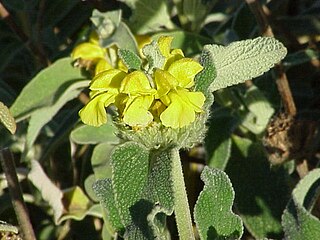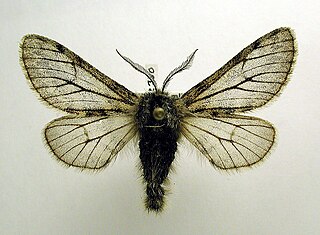
Lycia was a state or nationality that flourished in Anatolia from 15–14th centuries BC to 546 BC. It bordered the Mediterranean Sea in what is today the provinces of Antalya and Muğla in Turkey as well some inland parts of Burdur Province. The state was known to history from the Late Bronze Age records of ancient Egypt and the Hittite Empire. Lycia was populated by speakers of the Luwian language group. Written records began to be inscribed in stone in the Lycian language after Lycia's involuntary incorporation into the Achaemenid Empire in the Iron Age. At that time (546 BC) the Luwian speakers were decimated, and Lycia received an influx of Persian speakers. Ancient sources seem to indicate that an older name of the region was Alope.

Xanthos was an ancient major city near present-day Kınık, Antalya Province, Turkey. The remains of Xanthos lie on a hill on the left bank of the Xanthos river. The number and quality of the monumental tombs still standing is a remarkable feature of the site.

The dunlin is a small wader, formerly sometimes separated with the other "stints" in the genus Erolia. The English name is a dialect form of "dunling", first recorded in 1531–1532. It derives from dun, "dull brown", with the suffix -ling, meaning a person or thing with the given quality.

Patara was an ancient and flourishing maritime and commercial city, capital of Lycia, on the south-west coast of Turkey near the modern small town of Gelemiş, in Antalya Province.

BMW M62 is a naturally aspirated V8 petrol engine which was produced from 1995 to 2005. A successor to the BMW M60, the M62 features an aluminium engine block and a single row timing chain.

Phlomis is a genus of over 100 species of herbaceous plants, subshrubs and shrubs in the family Lamiaceae, native from the Mediterranean region east across central Asia to China.

Phaselis or Faselis was a Greek and Roman city on the coast of ancient Lycia. Its ruins are located north of the modern town Tekirova in the Kemer district of Antalya Province in Turkey. It lies between the Bey Mountains and the forests of Olympos National Park, 16 kilometres (9.9 mi) south of the tourist town of Kemer and on the 57th kilometre of the Antalya–Kumluca highway. Phaselis and other ancient towns around the shore can also be accessed from the sea by daily yacht tours.

Alpina Burkard Bovensiepen GmbH & Co. KG is an automobile manufacturing company based in Buchloe, in the Ostallgäu district of Bavaria, Germany that develops and sells high-performance versions of BMW cars.

The Rosalia longicorn or Alpine longhorn beetle, is a large longicorn that is distinguished by its distinctive markings.

Telmessos or Telmessus, also Telmissus, later Anastasiopolis, then Makri or Macre, was the largest city in Lycia, near the Carian border, and is sometimes confused with Telmessos in Caria. It was called Telebehi in the Lycian language. The well-protected harbor of Telmessos is separated from the Gulf of Telmessos by an island.

Sopó is a municipality and town of Colombia in the department of Cundinamarca. The town is located 39 km north of the Colombian capital Bogotá.

The brindled beauty is a Palearctic moth belonging to the family Geometridae.
The Grand Lodge Alpina of Switzerland is one of the Grand Lodges of Freemasons in Switzerland.

Lycia is a genus of moths in the family Geometridae.

Rosa Lúcia Benedetti Magalhães is a Brazilian professor and artist. She is best known as the most successful carnival designer in Rio de Janeiro, with six championships won since 1984, when the Sambadrome Marquês de Sapucaí was built. Designing carnival parades since 1971, Rosa likes telling historic events in her designs, such as the discovery of Brazil (2000), the life and creations of Hans Christian Andersen (2005), Don Quixote (2010), and the corruption scandal that led to the construction of the Versailles Palace in France (2017).

Lycia pomonaria is a moth of the family Geometridae. It is found from central and northern Europe through Siberia to the Kamchatka Peninsula.

Trebenna (Τρεβέννα) or Trabenna (Τραβέννα) was a city in ancient Lycia, at the border with Pamphylia, and at times ascribed to that latter region. Its ruins are located east of the modern town Çağlarca in the Konyaaltı district of Antalya Province, Turkey. The site lies 22 km to the west of Antalya.

Apollonia was a city in ancient Lycia. Its ruins are located near Kiliçli (Sıçak), a small village in the Kaş district of Antalya Province, Turkey.

Achillea alpina, commonly known as alpine yarrow, Chinese yarrow or Siberian yarrow, is an Asian and North American species of plant in the sunflower family. It is native to Siberia, the Russian Far East, China, Mongolia, Korea, Japan, Nepal, Canada, the northern United States.

The Alpina B7 Bi-Turbo, or Alpina B7, is the fifth generation of the high performance full-size luxury car manufactured by German automobile manufacturer Alpina. Based on the BMW 7 Series (G12), the B7 Bi-Turbo was introduced at the 2016 Geneva Motor Show. Known as the B7 in North America, the car is the third B7 model to be imported to the United States.






















